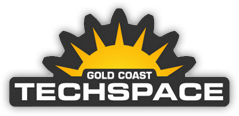A Queensland primary school focusing on sea turtles is among 16 recipients sharing in the latest round of the Palaszczuk Government’s Advance Queensland Engaging Science Grants.
Minister for Innovation, Science and the Digital Economy Leeanne Enoch said today (Friday) Cleveland State School had organised a STEAM-ATHLON allowing students to take “a dive into their future”.
Ms Enoch said the competition – to be held next Tuesday – will focus on the Moreton Bay Sea Turtle, and is designed to ignite students’ passion for science, technology, engineering, the arts and mathematics (STEAM).
“The STEAM-ATHLON is supported by our Advance Queensland Engaging Science Grants, and aims to prepare students for the jobs of the future and develop their skills in critical thinking, creativity, collaboration and innovation,” Ms Enoch said.
“It is important to expose students to the breadth of STEAM opportunities so they can consider the many possible career options available.”
Member for Capalaba Don Brown said the STEAM-ATHLON will involve an academic triathlon made up of three tasks designed to challenge, engage and enrich the participants.
Mr Brown said Cleveland State School has partnered with Sea World Research and Rescue Foundation to host the event, which will benefit students in the Redland region.
“About 60 Year 5-7 students from Thornlands State School (SS), BayView SS, Ormiston SS, Mount Cotton SS, Dunwich SS and Cleveland State High School will also take part,” he said.
“The Palaszczuk Government understands the important role primary schools play in fostering STEAM education.”
Cleveland State School principal Mark Ionn said his school consulted current research, communicated with other schools and analysed Cleveland SS data trends when designing the STEAM-ATHLON.
“STEAM capability will play a pivotal role in the future, so we need to encourage our young people to explore STEAM opportunities at a primary level for their secondary subject selection, future careers, and in their everyday lives,” Mr Ionn said
“We were very grateful to receive $8335 from Engaging Science Grants round three to help fund the STEAM-ATHLON. We hope to expand on the collaboration we’ve had with other schools, Sea World Research and Rescue Foundation, and the wider community and see where this can take us into the future.”
Round three recipients sharing in $142,185 also include:
- Blackwater State School – $4550 for a STEM project to work collaboratively with Central Highlands Regional Council to create a rest stop between Blackwater SS and the Capricorn Highway. The project uses science, technology, engineering and maths (including drones), and will create digital videos.
- Refactor – $10,000 for a project in collaboration with Gold Coast TechSpace and Gold Coast Libraries to work on a connected weather and environment station that is low-cost and low-power, and can be easily deployed to community buildings.
- Ingham State School – $9900 for a project to combine cutting-edge science, storytelling and artistic activities to educate and engage Year 3-8 school children about the symbiotic partnerships with each coral polyp on the Great Barrier Reef.
- Boyne Island State School – $2820 for a project involving various challenges involving drones to allow students to engage in and test their knowledge in STEM to complete set tasks.
- Gordonvale State High School – $8810 for the Indigenous Girls in STEM project, which aims to promote STEM as a highly interactive and enjoyable field of study that will lead students to a myriad of career pathways.
- Greenmount Primary P&C Association – $9591 for a 10-week RoboTECH program in which students will engage with STEM resources and activities using multiple technologies and platforms, robotics, electronics engineering and craft.
- StarSapphire Productions – $10,000 for a project using digital media to communicate the science of spatial data that empirically tracks changes to our landscape. The touch-sensitive, immersive films will entertain communities around the state during the 2018 World Science Festival.
- Julatten State School P&C Association – $10,000 for an after-school program for 70 students focusing on local ecology.
- James Cook University – $8949 for a Deadly Science Getaway project to ignite passion for science among young Aboriginal and Torres Strait Islander women from remote communities.
- Bana Yarralji Bubu – $9600 for an innovative, immersive media portrait of Aboriginal Nyungkalwarra country at the threshold of rapid ecological change.
- Griffith University – $10,000 for the Moreton Bay Science Online project, dedicated to celebrating the marine science in Moreton Bay, and to revealing the Queensland scientists who are helping build the worldwide body of marine ecological knowledge.
- University of Southern Queensland – $10,000 for the Space and Sustainability Conference, a community event that supports primary children’s engagement with science by linking astronauts’ and astronomers’ understanding of the universe through science.
- Australian Coastal Protection Core – $9650 for the Coastal Protection Core Science Festival, comprising fun educational programs and workshops aimed at Year 3-6 students within the Moreton Bay Regional Council catchment.
- Queensland University of Technology – $9980 for the Rolling Stories project, which turns the Queensland Government’s call to target media which are supportive of ‘science stories’ into a design activity where scientists are encourage to both tell their stories and communicate them through creating table-top role playing games and then playing them with students.
- Queensland Trust for Nature – $10,000 for Flatback Bivouac Camp, at which students will camp on Avoid Island off Mackay, a critical nesting habitat for the vulnerable flatback turtle. Students will work alongside respected researchers to better understand the lifecycles of marine species.
The Advance Queensland Engaging Science Grants are designed to support scientists, researchers, science communicators, journalists, teachers and community groups to deliver science engagement and communication projects, events and activities that increase the profile of science in Queensland.
For more information about Engaging Science Grants visit advance.qld.gov.au/esg
